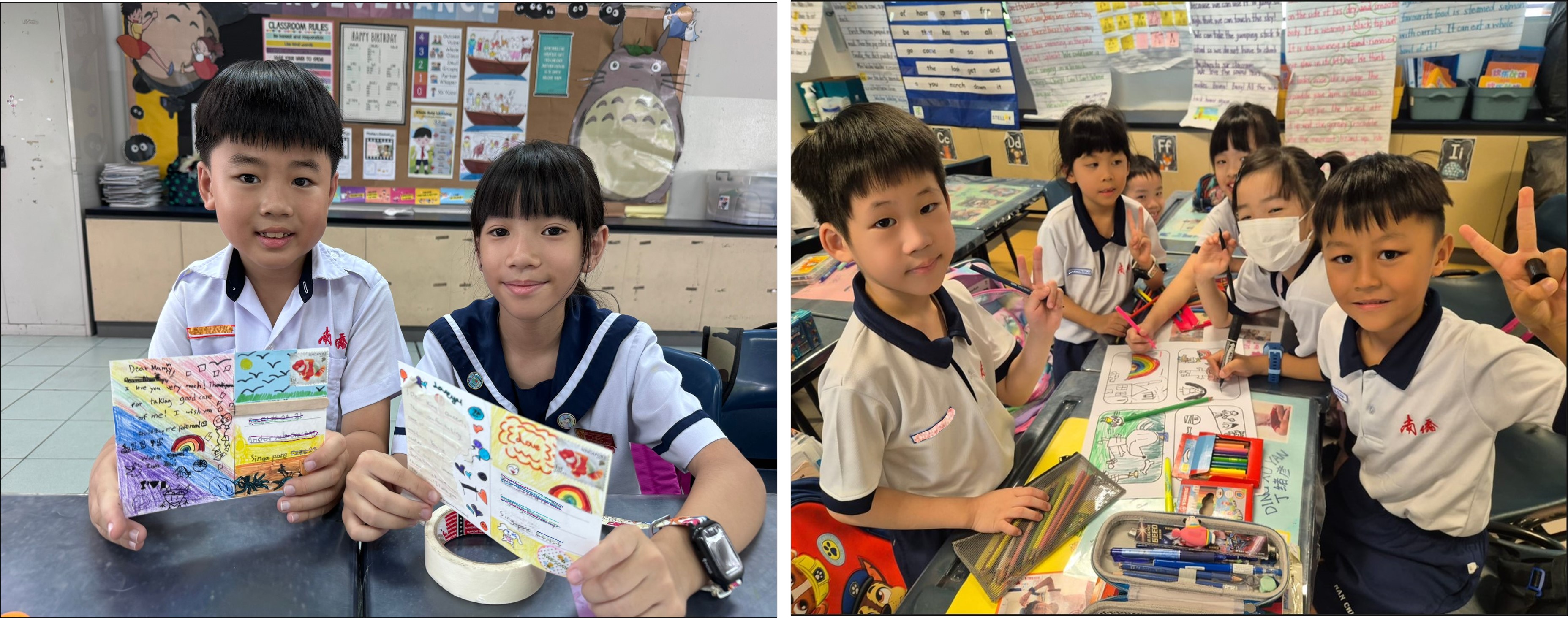English
Department Vision
Our students are active listeners, effective readers, inspiring speakers, talented writers, and passionate life-long learners.
Department Mission
To instil the love of English Language Learning and Reading through different strategies and foster life-long learning by Integrating 21 CC and values into the curriculum.
Department Approach
At NCPS, we aim to equip students with a strong foundation in reading, writing, speaking, listening, viewing & representing skills for effective communication and provide an enjoyable language learning experience through explicit instruction and communicative approach to language development anchored on the English Language Syllabus 2020 (MOE, Singapore).
Core Curriculum
STELLAR (Strategies for English Language Learning and Reading) is the core curriculum which the school adopts for English Language. STELLAR aims to strengthen children’s language and reading skills as well as promote a positive attitude towards learning in the foundation years. The programme uses research-based teaching strategies and age-appropriate materials to engage children in the learning of English.
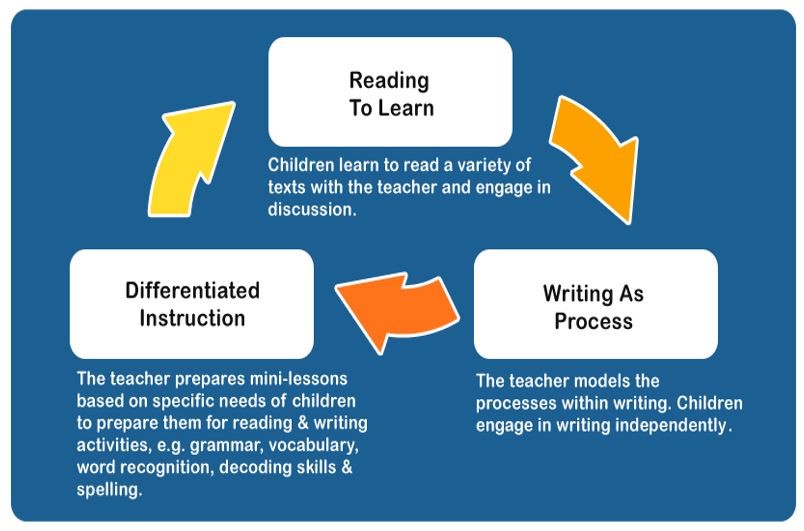
Key Programmes
Readers for Life
- T-Rex (Time for Reading EXposure) (P1-P6)
- Library Programmes (P1-P6)
- What’s Up (P6)
Learning Support Programme
- Learning Support Programme (LSP) for English
- Reading Remediation Programme (RRP)
- School-based Dyslexia Remediation (SDR) Programme
iCT In The Curriculum
- iCT in the classroom
- Moo-O
Experiential Learning
- Activities in and outside classroom
Readers for Life
TREX- Time for Reading EXposure
TREX: In line with Stellar 2.0, we aim to strengthen our children’s language and reading skills through TREX - Time for Reading EXposure. We adopt a school-wide approach where students are exposed to books of different genres in their foundational years. Through this programme, we wish to foster good reading habits in our students and inject a little fun before lessons begin.
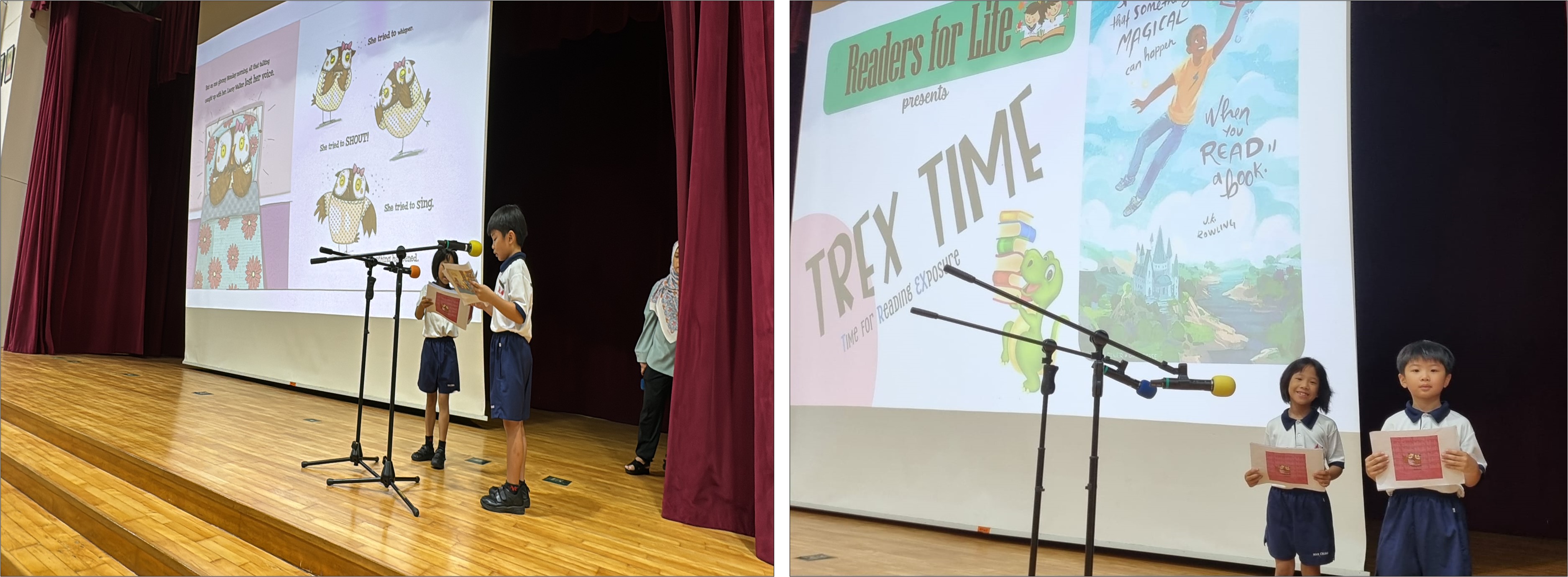
School-Based Reading Programme
The objective of our Reading Programme is to develop students’ interest and positive attitude to
learning beyond their comfort zones, indirectly improving their achievement in the language, and
fostering in them a life-long habit of self-directed learning for information and enjoyment. By
providing students with a repertoire of resources that are current and of interest, we believe that
their motivation in learning beyond the classroom will grow. Students will be intrinsically motivated
to find out more, share their knowledge, and build on one another’s knowledge.
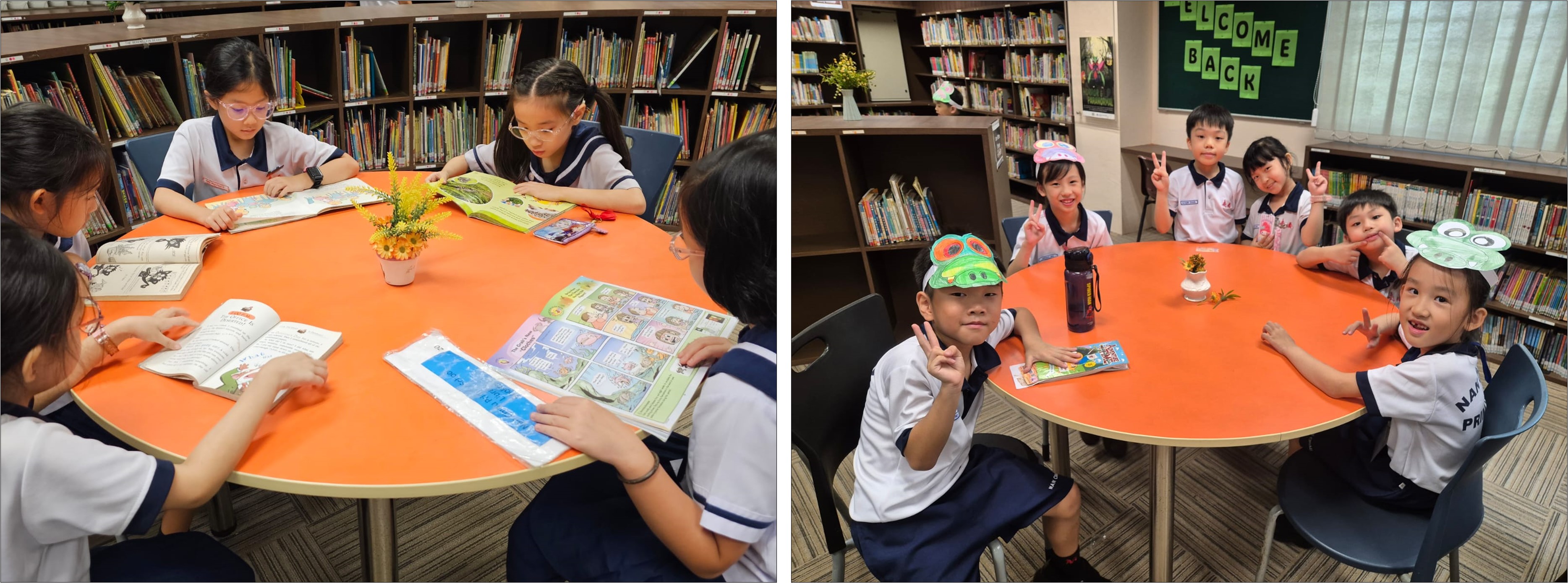
What’s Up Newspapers
- newspaper for school children
- curated contemporary issues and presented at the appropriate level for young readers to inform and challenge them.
- keeping the students engaged through the English language exercises that improve oral, grammar and composition skills
What is Learning Support?
Through specialised early intervention programmes, students are provided with structured curriculum to close their learning gaps with their peers.
The programmes are conducted by trained teachers who focused on building language skills in small groups of not more than ten students.
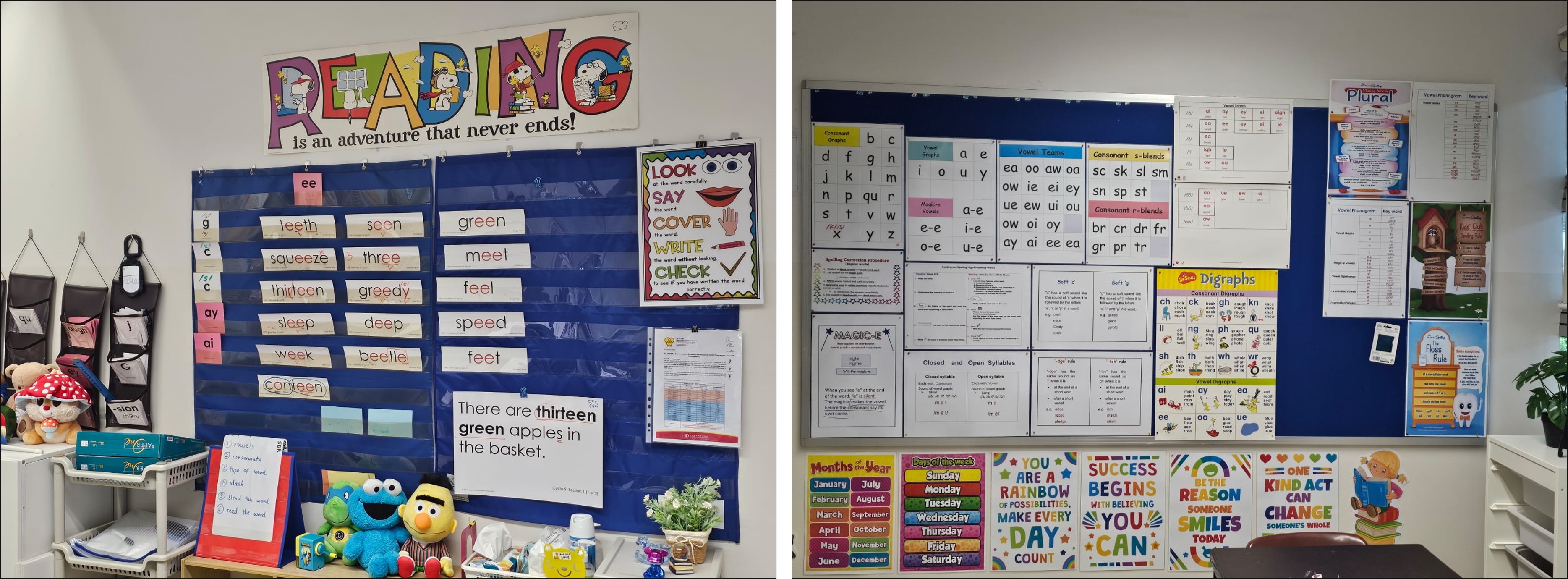
iCT In The Curriculum
iCT In The Classroom
In Nan Chiau Primary School, our self-directed learners:
- are intrinsically motivated to learn
- take ownership of their own learning
- manage and monitor their learning independently
- explore and sustain their interests beyond the curriculum
NCPS students are also connected learners who continually learn by:
- collaborating with their peers, the community and the world
- connecting a range of online and offline information sources
In addition, NCPS students are digital learners who leverage
technology for learning and can:
- find, think, apply and digitally create
- navigate the digital space in a safe and responsible way
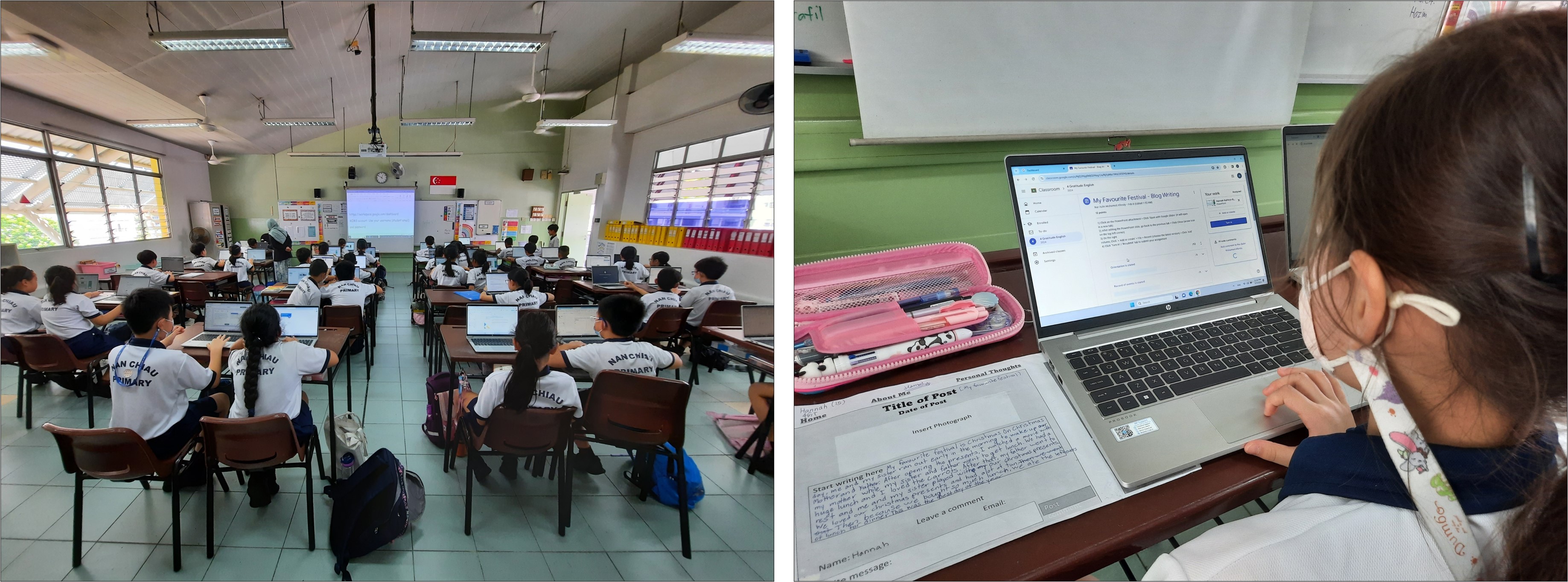
Experiential Learning
- Teaching English with hands-on activities can help language students learn and practice new vocabulary, grammar, ideas, and concepts
- Students learn in a variety of ways, so it is important to teach using multiple methods. By incorporating hands-on experiences in our English lessons, students have higher levels of engagement and learning
Learning English Through Fun & Games
- Games are a fun way to practise English – it can be a really motivating way to learn a language
- Games are also great for students who are shy or worried about making mistakes. It can give them an opportunity to communicate in English in a safe and fun way
- Games encourage teamwork, problem-solving and creativity – and everyone wins! Students can play together in a fun, supportive way and improve their English at the same time.
